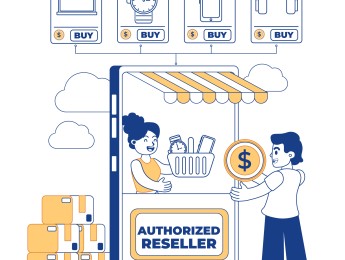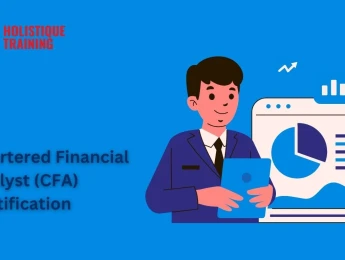Fintech, short for financial technology, refers to the innovative use of technology to deliver financial services and solutions. It encompasses a wide range of applications, including online banking, mobile payments, blockchain, artificial intelligence, and more.
Understanding Fintech is paramount for businesses seeking progression in today's rapidly evolving financial landscape. The integration of Fintech solutions offers businesses the opportunity to streamline operations, enhance customer experiences, and optimise financial processes.
Whether through efficient online transactions, data-driven insights, or advanced risk management tools, Fintech plays a crucial role in improving overall business efficiency and competitiveness. Embracing it enables businesses to stay agile and responsive to market changes, fostering innovation and adaptability.
As technology continues to reshape the financial industry, a profound understanding of Fintech is not merely advantageous but has become a necessity for businesses aiming to thrive and succeed in the modern economy.
Upon completion of this course, participants will be able to:
- Express the evolving responsibilities within the finance sector.
- Recognise challenges associated with imperfect information, asymmetric information, and behavioural biases.
- Evaluate diverse technologies employed to tackle information-related issues.
- Explore the transformative impact of digitisation on the financial landscape.
- Gain insights into the role of AI, data analytics, and blockchain in optimising financial services for increased revenue and profitability.
- Examine the use of various financial technologies in addressing information challenges within the financial services industry.
This course is designed for anyone responsible for reporting financial data or making large financial decisions based on data insights and budgeting. It would be most beneficial for:
- Business Owners
- Financial Managers
- Chief Financial Officers
- Directors
- Data Analysts
- Business Analysts
- IT Consultants
- Project Managers
- Accountants
- Funding Managers
- Fintech Consultants
- Compliance Managers
- Risk Assessors
- Auditors
This course uses a variety of adult learning styles to aid full understanding and comprehension. Participants will review various FinTech systems and understand the benefits of each in relation to their own industry. They will hold group discussions to identify the need for change management using FinTech and also assess the risk factors involved.
They will have the opportunity to discuss real-world case studies of companies who are FinTech first and review the benefits that the change and development of AI has had within their organisations
Day 5 of each course is reserved for a Q&A session, which may occur off-site. For 10-day courses, this also applies to day 10
Section 1: The Transformation of Finance into Digital Services
- Overview of FinTech and its impact on finance.
- Evolution of traditional banking to digital banking.
- Peer-to-peer lending and crowdfunding platforms.
- Mobile payments and digital wallets.
- Regulatory challenges in FinTech.
- Cybersecurity in digital finance.
- Financial inclusion through technology.
- Fintech startups and innovation hubs.
- Future trends in the digitisation of financial services.
Section 2: Using Big Data & Artificial Intelligence
- Artificial intelligence in financial decision-making.
- Robo-advisors and algorithmic trading.
- Data analytics for risk management.
- Predictive analytics for financial forecasting.
- Algorithmic trading and quantitative finance.
- Credit scoring models and machine learning.
- Fraud detection using big data and AI.
- Customer segmentation and personalization in finance.
- Regulatory compliance and big data analytics.
- Ethical considerations in AI for financial services.
Section 3: Blockchain Contracts
- Role of blockchain technology in financial services.
- Understanding blockchain technology and smart contracts.
- Legal implications of blockchain contracts.
- Coding smart contracts: introduction to solidity.
- Decentralised autonomous organisations (DAOs) on the blockchain.
- Security and privacy considerations in blockchain contracts.
- Interoperability and standards for blockchain contracts.
Section 4: Finding Asymmetric Information & Risk Evaluation
- Behavioural economics and its impact on information asymmetry.
- Credit risk assessment in the presence of asymmetric information.
- Market signals and their role in recognising information asymmetry.
- Strategies for mitigating information asymmetry in investment.
- Ethical considerations in handling asymmetric information.
- Technological solutions for detecting and managing asymmetric information.
Section 5: Biases and Nudge Solutions
- Technological innovations for implementing nudge solutions.
- Quantitative approaches to analysing behavioural data.
- Integrating nudge strategies in personal finance apps.
- Types of cognitive biases in financial decision-making.
- The role of heuristics in shaping financial behaviours.
Section 6: Security & Governance Factors with FinTech
- Corporate governance and nudge policies in financial institutions.
- Global perspectives on addressing biases in financial systems.
- Cybersecurity threats and risks in financial technology.
- Regulatory frameworks for securing FinTech operations.
- Data protection and privacy in FinTech applications.
- Secure coding practices for FinTech development.
- Identity verification and authentication in digital finance.
- Governance structures for FinTech companies.
- Compliance with anti-money laundering (AML) regulations.
Upon successful completion of this training course, delegates will be awarded a Holistique Training Certificate of Completion. For those who attend and complete the online training course, a Holistique Training e-Certificate will be provided.
Holistique Training Certificates are accredited by the British Assessment Council (BAC) and The CPD Certification Service (CPD), and are certified under ISO 9001, ISO 21001, and ISO 29993 standards.
CPD credits for this course are granted by our Certificates and will be reflected on the Holistique Training Certificate of Completion. In accordance with the standards of The CPD Certification Service, one CPD credit is awarded per hour of course attendance. A maximum of 50 CPD credits can be claimed for any single course we currently offer.
- Course Code PF1-143
- Course Format Classroom, Online,
- Duration 5 days














